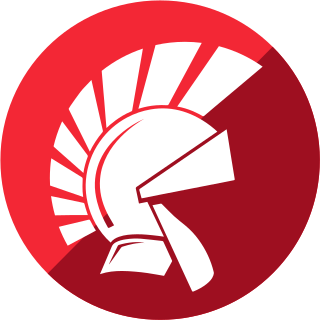
HyperCard is a software application and development kit for Apple Macintosh and Apple IIGS computers. It is among the first successful hypermedia systems predating the World Wide Web.
Java Platform, Micro Edition or Java ME is a computing platform for development and deployment of portable code for embedded and mobile devices. Java ME was formerly known as Java 2 Platform, Micro Edition or J2ME. As of December 22, 2006, the Java ME source code is licensed under the GNU General Public License, and is released under the project name phoneME.
HyperTalk is a discontinued high-level, procedural programming language created in 1987 by Dan Winkler and used in conjunction with Apple Computer's HyperCard hypermedia program by Bill Atkinson. Because the main target audience of HyperTalk was beginning programmers, HyperTalk programmers were usually called "authors" and the process of writing programs was known as "scripting". HyperTalk scripts resembled written English and used a logical structure similar to that of the Pascal programming language.
In computing, cross-platform software is computer software that is designed to work in several computing platforms. Some cross-platform software requires a separate build for each platform, but some can be directly run on any platform without special preparation, being written in an interpreted language or compiled to portable bytecode for which the interpreters or run-time packages are common or standard components of all supported platforms.
A computing platform or digital platform is an environment in which a piece of software is executed. It may be the hardware or the operating system (OS), even a web browser and associated application programming interfaces, or other underlying software, as long as the program code is executed with it. Computing platforms have different abstraction levels, including a computer architecture, an OS, or runtime libraries. A computing platform is the stage on which computer programs can run.
Revolution is a software development environment/multimedia authoring software in the tradition of HyperCard and is based on the MetaCard engine. Its primary focus is on providing a relatively accessible development tool set and scripting language that enable the creation of software programs that run across multiple platforms with little or no code modifications. The Integrated Development Environment (IDE) included with Revolution is built partly on the models created by Bill Atkinson and the original HyperCard team at Apple and subsequently followed by many other software development products, such as Microsoft's Visual Basic. Revolution includes an English language-like scripting language called Transcript, a full programming language superset of the HyperCard's scripting language, HyperTalk.
C++Builder is a rapid application development (RAD) environment, originally developed by Borland and as of 2009 owned by Embarcadero Technologies, for writing programs in the C++ programming language currently targeting Windows, iOS and for several releases, macOS and Android C++Builder combines the Visual Component Library and IDE written in Object Pascal with multiple C++ compilers. Most components developed in Delphi can be used in C++Builder with no or little modification, although the reverse is not true, but this constraint is valid only for source code. Binary code generated by Delphi can easily be linked to binary code generated by C++Builder and vice versa to generate an executable written in both Object Pascal and C++. With this approach, C++ can be called from Object Pascal and vice versa. Since both Delphi and C++ use the same back end linker, the debugger can single step from Delphi code into C++ transparently.
A cross compiler is a compiler capable of creating executable code for a platform other than the one on which the compiler is running. For example, a compiler that runs on a PC but generates code that runs on an Android smartphone is a cross compiler.

Delphi is a general-purpose programming language and a software product that uses the Delphi dialect of the Object Pascal programming language and provides an integrated development environment (IDE) for rapid application development of desktop, mobile, web, and console software, currently developed and maintained by Embarcadero Technologies.
Object Pascal is an extension to the programming language Pascal that provides object-oriented programming (OOP) features such as classes and methods.

Free Pascal Compiler (FPC) is a compiler for the closely related programming-language dialects Pascal and Object Pascal. It is free software released under the GNU General Public License, with exception clauses that allow static linking against its runtime libraries and packages for any purpose in combination with any other software license.

SuperCard is a high-level development environment that runs on Macintosh computers, under OS 8 and 9, and OS X. It is inspired by HyperCard, but includes a richer language, a full GUI toolkit, and native color.
MetaCard is a discontinued cross-platform, commercial HyperCard clone. MetaCard included an IDE, a GUI toolkit and had its own language, MetaTalk. From the MetaCard Corporation website: "The MetaTalk language has all the features common to third-generation languages like C/C++/Java but has a much simpler syntax."
NS Basic is a family of development tools developed and commercially marketed by NSB Corporation in Toronto, Ontario, Canada for iOS, Android, Microsoft Windows, MacOS, Linux, BlackBerry OS, WebOS, Newton OS, Palm OS, Windows CE and Windows Mobile.
RemObjects Software is an American software company founded in 2002 by Alessandro Federici and Marc Hoffman. It develops and offers tools and libraries for software developers on a variety of development platforms, including Embarcadero Delphi, Microsoft .NET, Mono, and Apple's Xcode.
LiveCode is a cross-platform rapid application development runtime system inspired by HyperCard. It features the LiveCode Script programming language which belongs to the family of xTalk scripting languages like HyperCard's HyperTalk.

Xamarin is a Microsoft-owned San Francisco-based software company founded in May 2011 by the engineers that created Mono, Xamarin.Android and Xamarin.iOS, which are cross-platform implementations of the Common Language Infrastructure (CLI) and Common Language Specifications.

Mono is a free and open-source .NET Framework-compatible software framework. Originally by Ximian, it was later acquired by Novell, and is now being led by Xamarin, a subsidiary of Microsoft and the .NET Foundation. Mono can be run on many software systems.


